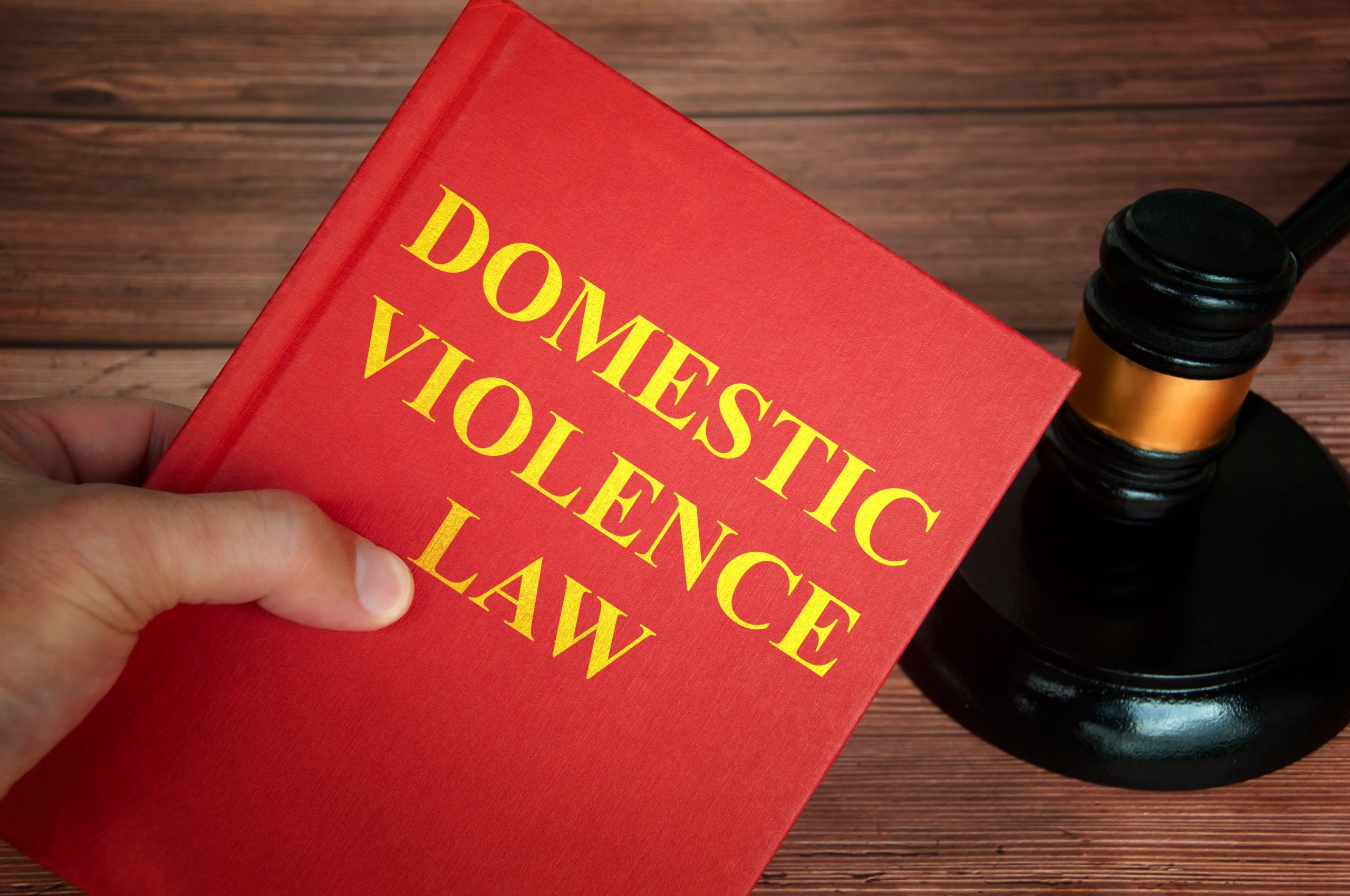Our domestic violence lawyers in Sydney offer FIXED FEES and a FREE consult to anyone facing a domestic violence charge in court.
With over 40-years combined experience, we’ve appeared across all courts in domestic violence cases with exceptional results.
Going to court for a domestic violence allegation? Don’t risk it. We can talk to you about everything you need to know, including the court process. This is our specialty. We can stand by you, represent you and fight for you in court.
Our Sydney domestic violence lawyers have achieved a proven track record of success in:
- Getting domestic violence charges dropped early, saving costly legal fees & stress.
- Getting the other side to pay our clients legal costs via court orders.
- Proving our clients’ innocence by successfully defending domestic violence charges by developing and presenting a strong defence case in court.
Domestic Violence Australia | Family Violence Lawyers
NSW Laws have been changed to introduce greater power to police. Police are now able to immediately issue provisional AVOs. They’re now also able to adduce an alleged victim’s evidence in court over an AVL screen rather than in-person, during a domestic violence hearing.
Our award winning family violence lawyers specialise in domestic violence cases. We’ve achieved outstanding results in court for over two decades. We can talk to you about any enquiries on domestic violence laws and charges.
What is Domestic Violence?
Domestic violence is where there is violence between people who’re in a domestic relationship, such as partner, family, or anyone you live or used to live with. To be classified as ‘domestic violence’, the violence must be considered a ‘personal violence offence’.
Our experienced domestic violence lawyers have been awarded ‘all assaults law firm of the year’ by ACQ5 Law awards, and we’ve attained over 100 five star online reviews from genuine clients.
Types of Domestic Violence
Common types of domestic violence include, AVO breaches, stalk/intimidate, common assault, actual bodily harm, grievous bodily harm, wounding, using carriage service to harass, threat, menace or offend, choke or strangulate, property damage, and can include sexual assault and murder.
Our domestic violence lawyers can talk to you about the penalties and defences for your domestic violence charge(s). We can also guide you on the realistic scenario outcome of your case.
How many years can you get for domestic violence?
A court can impose a sentence of up to 2-years jail for domestic violence. Courts prefer not to impose jail sentences, especially to a first time domestic violence offender.
The sentence or penalty for domestic violence depends on the type of domestic violence, the who, what, how, when, your subjective case such as mental health, and stage you plead guilty, or if the court finds you guilty.
With many years of experience, our leading domestic violence lawyers can talk to you about the realistic sentence for your case.
Can Domestic Violence Charges be Dropped or Dismissed?
We’ve managed to successfully negotiate with the prosecution to drop domestic violence charges early, and successfully defended domestic violence charges in court countless times for over two decades.
Getting charges dropped early saves costly legal fees and stress. This can be done by discovering your best defence(s) and holes in the police evidence. We can talk to you about how we can help you achieve this for your case.
Domestic Violence Statistics
Domestic violence is prevalent in our nation, and a significant number of domestic violence go unreported. Statistics reveal that male offenders comprise of the larger piece of the pie than female offenders of domestic violence. However, a large portion of male victims to domestic violence cases also go unreported.
Our lawyers have successfully defended countless male and female clients who’ve been accused of domestic violence when they shouldn’t have been charged.
Domestic Violence Cases
A 2016 ABS personal safety survey has revealed that from 1.6 million adult women, 17% were subject to violence by a partner since the age of 15. From 547,600 adult men, 6% were subject to violence by a partner since the age of 15.
Women are almost three times more probable to experience violence from a partner than men. But the extent of partner violence experienced by men has risen. Domestic violence cases range from AVO breaches to common assault, intimidation & more.
Family Law Domestic Violence
A domestic violence conviction or an AVO can have significant consequences, including child access in family law parenting disputes through the family court, firearms licence/permit, and working with children check clearance.
Our domestic violence lawyers specialise in family law domestic violence cases. We can talk to you about the best course of action in your case to avoid these consequences.
What happens when you get a domestic violence charge?
If you or your loved one is charged for domestic violence, bail will then either be granted or refused. A court attendance will then be required where a plea of ‘not guilty’ or ‘guilty’ must be entered in court. Legal advice is highly recommended before going to court.
Our domestic violence lawyers are respected and familiar with the criminal justice system and court proceedings. We can urgently appear in court to make a bail application. We’re also available for urgent on-the-spot legal advice and court representation.
What happens at a domestic violence trial?
A domestic violence trial or hearing commences by confirming your plea of ‘not guilty’. It will follow with the prosecution opening its case and calling its witnesses who will be cross examined by defence lawyers. The defence will then consider giving evidence before the court will decide on a verdict of either ‘guilty’ or ‘not guilty’ after hearing submissions from both sides.
It’s important to have an experienced & respected team of domestic violence lawyers defending you in trial. Our award-winning domestic violence lawyers have decades of experience successfully achieving exceptional results in court.
How do you prove a domestic violence case?
If police are unable to prove each element of a domestic violence charge beyond reasonable doubt, a court must return a verdict of ‘not guilty’ to the charge. Each type of domestic violence charge will have different elements required to be proven by the police, not the defence.
Our domestic violence lawyers and instructed barristers regularly appear in court, successfully defending clients for many years. We can talk to you about the pros and cons of your case to provide you with a full case appraisal.
Can a victim contact the defendant?
A victim can contact the defendant but should do so very cautiously after first getting legal advice. There are many circumstances a victim should not make contact to avoid the risk of the defendant getting in more trouble.
We can talk to you about this. Our team of lawyers are highly experienced in providing reliable advice and guidance for an alleged victim or defendant.
FAQ
Lawyers will charge between $825 (inc GST) to $5,500 (inc GST) for preparing, consulting and appearing in court for up to one day in a domestic violence charge, depending on the purpose of the court date and complexity of the case. The purposes of a court date could range from mention, reply, sentence, defended hearing or bail application in the local court.
Domestic violence cases can get dismissed if the police have insufficient evidence, or if the defence have a strong defence case, such as self-defence.
Sometimes it the charge(s) are dismissed if the alleged victim provides further evidence that creates significant enough inconsistencies or holes in the police evidence.
The maximum penalty for most common types of domestic violence charges range from 2-years imprisonment or $2,200 fine, or both, to 25-years imprisonment or $11,000 fine, or both. Murder carries up to life in jail. The maximum penalties are rarely imposed though.
What usually happens in a domestic violence case involves first being charged by police, then attending court to plead either ‘guilty’ or ‘not guilty’ to the domestic violence charge.
The case will proceed to sentence where the court will impose a penalty after hearing further evidence and submissions by you or your lawyer, if a plea of ‘guilty’ has been entered.
If a plea of ‘not guilty’ has been entered, the case will eventually be adjourned to another court date for a defended hearing where the court will decide on a verdict of ‘guilty’ or ‘not guilty’ after hearing evidence from both sides.
First time domestic violence offenders will generally be sentenced more leniently than second time domestic violence offenders in court. T
Domestic violence offenders will not necessarily go to jail. In fact, our domestic violence lawyers have achieved non-conviction outcomes countless times in court for first & second time domestic violence offenders.
Each case must be considered on its own set of circumstances and merit.
A domestic violence warrant can and will be dropped if the domestic violence case ends up getting dismissed or dropped. Otherwise the warrant remains until it is executed by police. If you have more questions about warrants, call us. We can talk about it.
A domestic violence charge can only be beaten if it either gets dropped early by negotiating with police, or the court finds you ‘not guilty’ after a hearing in court. When negotiating to convince police to drop the charge, a document called ‘legal representation’ must be drafted and sent to the prosecution pointing out the holes in the police evidence.
For the court to find you ‘not guilty’ to the domestic violence charge, the court will need to conclude, after hearing the prosecution’s evidence, that the prosecution have failed to prove its case beyond reasonable doubt, as to each element of the particular domestic violence charge.
In some case, you can successful apply to the court to seek that the prosecution/police pay your legal fees.










